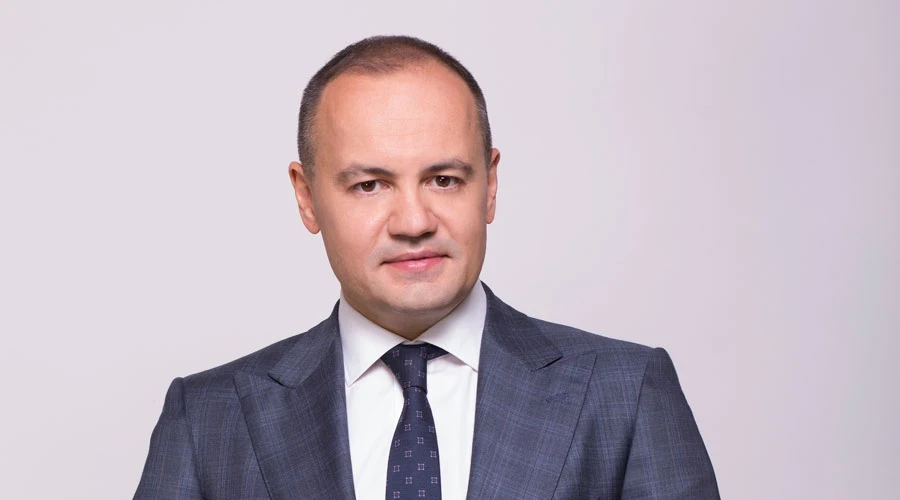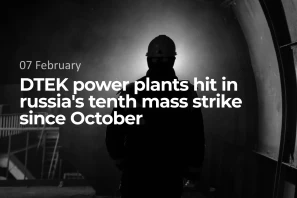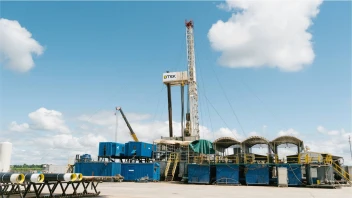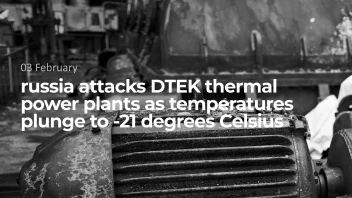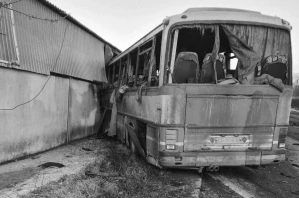What have been your biggest achievements over the last 13 years?
I think the best thing we have is the team we have built. I am proud of its professionalism. I am also proud of the standards we managed to maintain throughout the 13-year history of DTEK. Second, we have been a reliable partner, supporting the government in good and in difficult times. We have experienced different governments and political turbulence here in Ukraine, but we managed to keep our operation as stable as possible. We increased coal production by two-thirds over this period. Since entering the gas sector in 2013, we have multiplied production threefold. With $7.8 billion of investment over the past 10 years, we have achieved outstanding results, especially for Ukraine. Our example proves that if you adopt Western values and have zero tolerance for corruption, you can achieve great results.
In this changing Ukraine, what have been your most significant challenges?
First, the biggest challenge was to set up this company from scratch. We started as a regional company, but it was not really a business, but rather a post-Soviet coal production and electricity generation enterprise. The first challenge for the whole team was to convert this production-oriented company into a business. My role was to combine young, ambitious Western-educated managers with production managers and specialists, who were very good primarily at the technical side. People learned from one another, and we built a solid foundation for our business. Then in 2014 and 2015, there was what one calls a perfect storm: we had a political crisis, an economic crisis and war in our home region. This was the biggest possible challenge our company has ever experienced. I believe we can be proud of how we managed to keep our company afloat, restructuring our debt portfolio and performing our contractual obligations on the coal/electricity market. We demonstrated to the Ukrainian government and the whole country that we are a reliable partner in this industry. This is a very important thing in a volatile environment. There were points where we had to make decisions: either to pay our workers’ salaries or to make urgent investments. We had to balance everything while ensuring uninterrupted power supply to our customers.
What can you tell us about DTEK’s role as a responsible and environmentally aware global corporate partner?
Today, any big company cannot be successful unless it takes an active stand in social responsibility; this is especially true for the energy sector. In the coal industry, responding to the challenge of emissions is already difficult. Besides, we have 75,000 employees, so we feel responsible for them and for the well-being of their families. There are 31 places (towns or municipalities) of DTEK’s operations. Local budgets depend a lot on our performance, as DTEK is the largest company/donor of their budgets. From the very beginning, we realized that if we don’t build sound business practices and proper relationships with our partners, we won’t be successful. Specifically, together with other peers, we launched the Energy for Society initiative in the framework of the World Economic Forum. We joined the UN Global Compact, and we report on our activities in order to stay in line with these commitments. We also invest heavily in the environment protection. We have a program of investment in emission filters, and in 3 to 4 years, we will be in line with European standards for dust emissions on our power plants. But there is still a huge challenge to decrease NOx and SOx emissions from the Ukrainian thermal power plants – 6.5 billion euros are needed to reach this goal. Government and market players have to unite their efforts to solve this problem. Five years ago we built the largest wind farm in Ukraine, and today we are the largest investor in renewables. By making these investments, we create a good example for others. Our goal is to produce reliable, affordable and clean energy.
What makes DTEK a good partner for multinational companies, and what is your approach to advancing foreign collaboration in Ukraine’s energy sector?
The important thing with any investor is to make sure we speak the same language in terms of values, practices, transparency and openness. Like other blue-chip companies, we have been through difficult situations in the capital markets during Ukraine’s three-fold currency devaluation. We told our investors that we wanted to repay our loans fully, and asked them to give us two years to stabilize our business after the crisis. Those who stayed with us did not regret their decision. If you build a relationship of trust in this way, then you can set a good benchmark for other investors. Of course, we want to promote Ukraine every time we travel abroad because I believe that only with the participation of foreign companies, investment and expertise Ukraine would have a chance to be successful, especially in the energy sector. There are huge opportunities for investments, and recent positive experience with General Electric (GE) is a good example. By 2020, DTEK is planning to build one gigawatt of installed capacity in solar and wind. These plans require $1.1 billion investment. This is a huge figure for Ukraine, and it could only be achieved on the basis of trust-based relationships with partners.
How would you assess sentiment among foreign investors toward the energy sector in Ukraine, and where do you see opportunities for growth?
Unfortunately, the political turmoil chases investors away. You can be talking to investors who say “we like your company, what you’re doing, your strategy, your team… but the political risk makes it impossible.” We are dependent on the regulatory environment, political situation and the investment environment in Ukraine.
In general, I think the energy sector in Ukraine is the most underdeveloped and promising market in Central Europe. With a population of 42 million people, Ukraine has huge investment needs and offers huge opportunities. Ukraine holds large gas reserves. We have coal deposits for over 100 years, and new technologies would make sure that these deposits are used in an environmentally friendly way.
Unfortunately, today we import most of our energy resources, starting with 100 percent of nuclear fuel (from Russia and other countries), up to 40 percent of gas, and up to 30 percent of coal. I am convinced that with a good regulatory environment and stable political situation, we will have foreign investments and technology here so that Ukraine can become 100 percent independent in gas and coal supplies. Just a month ago in Ukraine, a new independent regulator was relaunched. The competitive selection of commissioners was fully transparent, and in full accordance with the legislation, it was welcomed by external experts and observers. This is one of the conditions that I am sure will help reduce the political factor influence on the energy sector and create a stable regulatory environment, favorable for investors.
As a result of the blockades in the Donbas region, DTEK recently began importing coal from the U.S. How would you assess the high-level cooperation between the U.S. and Ukraine in the energy sector, and what scope is there to build upon this relationship?
In March 2017, unfortunately, we had to suspend our operations in the temporarily occupied territories of Donetsk and Luhansk regions. We had to find a way to overcome this problem, and part of that was to start importing coal from outside Ukraine. Last year we imported above 2.2 million tons, largely coal from South Africa the United States. With the support of the U.S. Embassy in Kyiv, we managed to come quickly to an agreement with the American companies so they would help us before winter comes. It’s a good example of building a relationship in a transparent way so that foreign companies can help you, and it creates a foundation for future development and energy security.
How do you rate the reforms made in Ukraine’s energy sector and what further changes would you like to see?
There have been a lot of reforms, and the government and the Parliament have to be respected for making such a significant progress in difficult times. We should also be grateful to foreign partners for bringing their agenda, which is so important for all stakeholders in Ukraine.
As for the gas sector, the new gas market liberalization law increased gas trading. With the adoption of the new tax regime for gas production, new drilling projects have been launched. But not a single auction for new gas licenses was conducted over the past year. This means that the government is not helping to open the sector for foreign and local investors. I hope this situation will change soon so that we can welcome investment into this sector.
In the electricity sector, we have a new law adopted last year, which has launched deep reforms. We do hope the new law will be implemented with the help of our foreign partners, and there finally will be a transition of the industry from the old Soviet model to international standards already in 2019. We see some notable shifts in this direction: last year Ukraine moved from manual, administrative regulation of the coal price which forms a part of the wholesale electricity price to the formula-based price-setting system. Now prices of fuel – gas or coal – are transparently linked with international commercial indexes and trends.
Where do you see DTEK 5 years from now?
Since we came out of the crisis period, we have been saying that we want to build a new DTEK based on what we call the 3 Ds: digitalization, decentralization and decarbonization. I see DTEK as a company that can become a leader in the implementation of new technologies in the sector. I see DTEK as a benchmark company in environmental protection, and we will make serious investments and lead the Ukrainian energy sector towards safer environmental practices. And we will also continue to be a benchmark for the market as a company which employs the best people. Our philosophy is to be the best in everything that we do.



